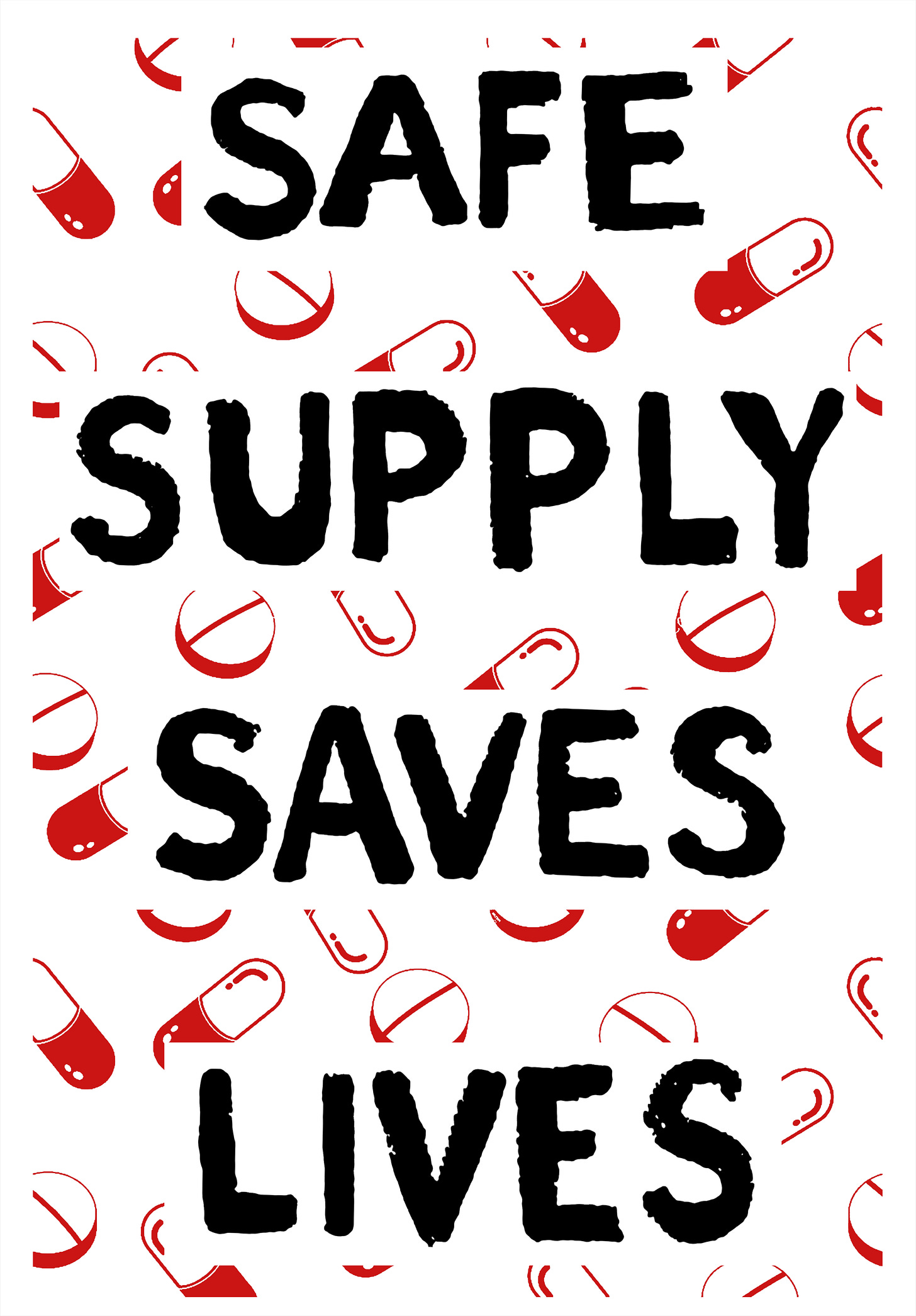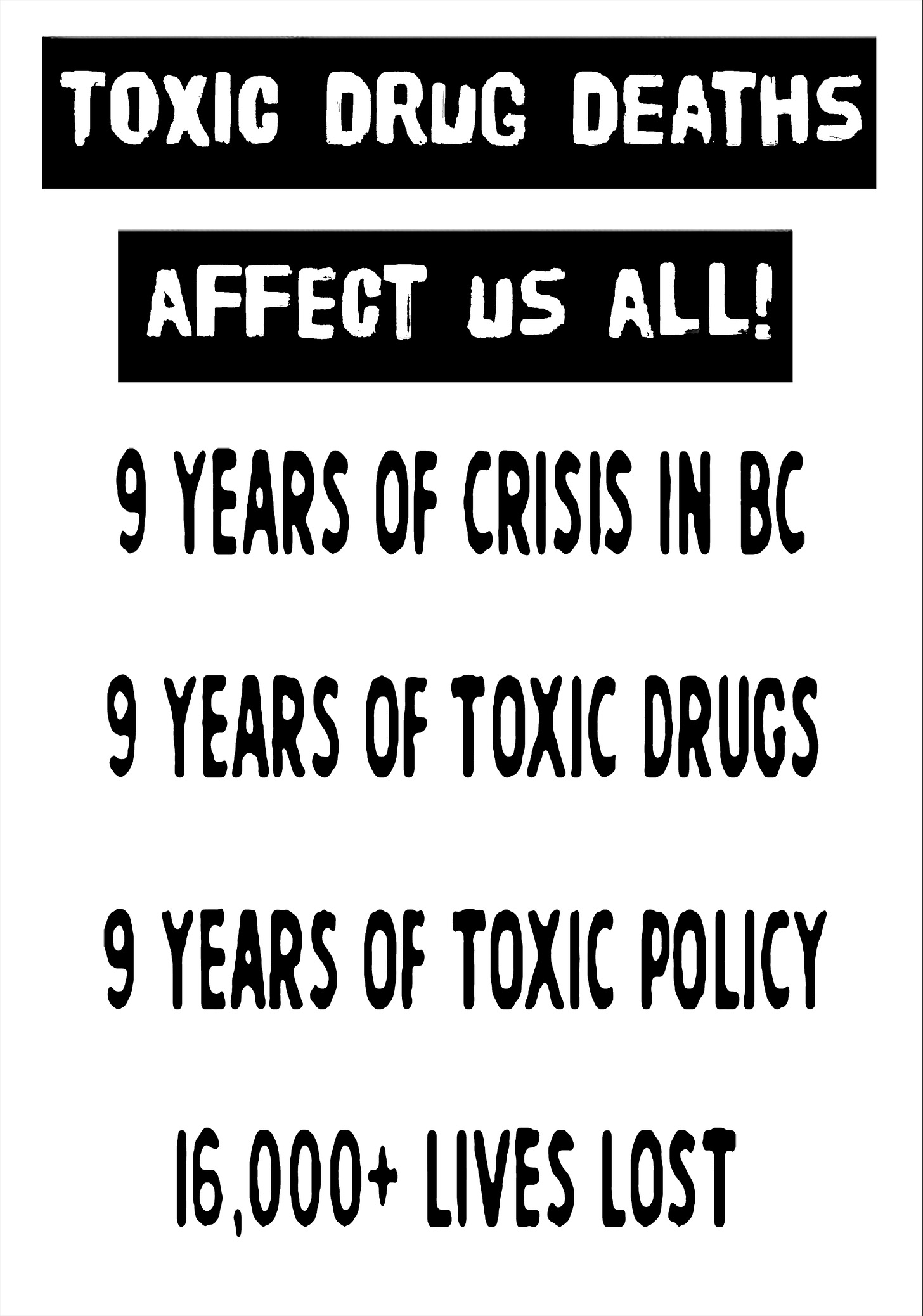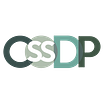Transcript: Students call out extractive research practices on ninth anniversary of toxic drug emergency
Members from the local chapter of Canadian Students for Sensible Drug Policy spoke at Victory Square rally on April 14, 2025
This speech was read by Dani, Sakura and Thea, three members of the Vancouver chapter of the Canadian Students for Sensible Drug Policy on April 14, 2025 at Victory Square. Minor edits made for readability.
To begin, we would like to introduce the concept of social war, in which the drug war is situated. The following is an excerpt from a zine written by anonymous author(s) of the black flag, published by Warzone Distro:
Social war is all around us.
It is present in the cop cars that patrol our streets,
in our schools,
in the designs of our cities and suburbs,
and in the boundaries of what it means to be a man or a woman.
to wage social war is to either exercise social control, or to destroy it,
to govern or to be ungovernable,
to forfeit agency to a representative or to take direct action.
social war is all around us,
we cannot choose whether we are subjected to it, but whether we choose to fight back.
It has now been nine years since the formalized declaration of the overdose crisis.
The state we live in has normalized this crisis for their own political and economic gains. Every year the number of fatalities from the toxic drug supply rises. Instead of investing time and energy into the community-based solutions that we know work for us, the government and academia turns our loved ones and comrades into statistics.
These statistics then used to justify defunding the community-based interventions that are saving lives. Statistics that are weaponize to sabotage the implementation of decriminalization. Statistics used to propose rezoning plans to evict our neighbours on stolen land.
This crisis is not inevitable, it is state manufactured and maintained.
We are speaking to you as students, researchers, and future healthcare workers. Groups that are exploited by the institutions that profit from our tuition and our research. Yet at the same time, we acknowledge that we are complicit in their exploitation. And by staying in the university space, we are taught how to be exploitative and to continue this cycle. It is on us to stop this cycle, we need to stop being tools to produce research because we know that our research will then be co-opted by institutions.
Academia perpetuates social war by furthering and reinforcing domination instead of focusing on abolishing these forms of violence. Academic institutions are only invested in maintaining their power. Power that tries to convince us that they are the sole holders of knowledge and research. Yet the research conducted through academia, and the knowledge these individuals and institutions gatekeep is produced by exploiting people, in the same way they exploit the very land we stand on, by stealing and using up every last drop they can get their hands on, not for us but to fill their pockets.
We assume many of you are familiar with the incredible work of DULF - the Drug User Liberation Front - who ran a compassion club before it was shutdown by police.
On top of the life saving work DULF did, they reminded us that we cannot trust any institution or level of government that claim to want to keep us safe.
Who keep us safe? We keep us safe.
DULF has played the games of academia. They tried to go through the rigid rules of the institutions. They received ethics approval to study the impacts of their member-only compassion club project, they tried to get exceptions from Health Canada, and they have published their findings for the whole of the research community. Yet, even after playing the institutions’ game, as dominant institutions saw that DULF was actually saving lives, they abandoned DULF, and then shut it down.
But, why did they really shut it down? Because if we have a solution to the crises, we no longer need to produce research or hire and train underpaid students, and thus the industrial processes of research becomes irrelevant.
The goal of research is supposed to be to find answers to research questions, but we already have the answers.
How can we allow institutions to frame themselves as the keepers of knowledge?
These institutions employ people like Daniel Vigo.
Daniel Vigo is an associate professor in UBC’s faculty of psychiatry, but also the provincially appointed “scientist” behind the expansion of involuntary care. It seems this researcher doesn’t read his own published research that says involuntary care does not work.
Daniel Vigo, like all researchers and academics who will align themselves with state violence, will undermine their own research because they don’t actually give a shit about us unless they’re making a profit off of us. Institutions and the actors within them will uphold this crises that pays their salaries and gets them fancy research distinctions. The crisis that they declared that now gives them grants that enable their games, and awards that allow them to climb the high and mighty ranks of upper academia.
The sobering truths of what research exists to uphold presently is something we are grieving.
There is so much to grieve right now amidst many genocides that have been occurring to this day.
At this mass funeral for all those who have died due to the drug war — and thus have died at the hands of social war since the absurdist declaration of the crisis nine years ago, we would like to assert that the blessed flame that is DULF does not die with the persecution of Eris and Jeremy.
In the opening statement that Assata Shakur delivered at her rigged trial in 1975, before her successful escape of prison to Cuba, she highlights that the Black Liberation Army is not an organization, but goes beyond that. It is a concept, a people's movement, an idea that many people have said and done different things in the name of. Shakur explores how the Black Liberation Army emerged as a concept from the conditions of Black communities and that it arose because of the political, social, and economic oppression of Black people in the imperial core.
Similarly, DULF as a concept emerged as a means of fighting the drug war, it arose because of the political, social, and economic oppression of people who use drugs. We have been abandoned and repressed by the state - harm reduction will soon be fully returned to its roots of direct action and mutual aid.
Rather than aimlessly mourning the inconvenience that is the state’s refusal to integrate and thus water us down into something formalized and respectable, we call you to engage in a transformative process of mourning. Witness each other in this grief towards all that we’ve lost due to hierarchical social organization, and let it compel you into the intimate dance that is organizing, the times we are situated in are a call to action. Social war is all around us.
It is time to fight back by representing ourselves and what we stand for rather than forfeiting our agency to electoral theatre. It is time for us to recognize that the conditions that DULF emerged from are not over, and thus our responsibility moving forward in the long term, if things do not turn out ideally, is to pivot, organize to support those who are incarcerated, pick up where they left off in a decentralized manner, and keep the legacy of DULF alive. We are all the drug user liberation front.







How wonderful to see this here. I had spoken with one of the students at the end of the rally and asked where I might read /share a copy of it- thank you for doing this ! It certainly resonated with me !